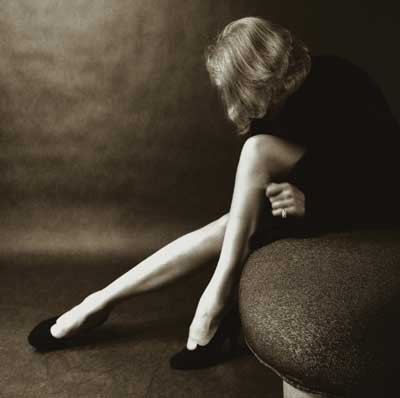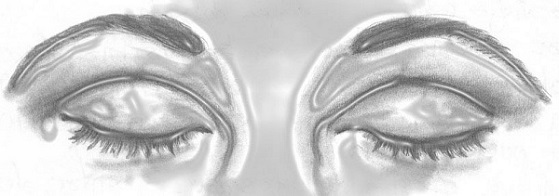After a While, You Learn: Jorge Luis Borges.
Hey Tired Soul, welcome to Existence.
We’re on a mission to make art indistinguishable from life. To turn it into a way, more than a thing. To reclaim our full creative powers and regain our work-of-art, nearly forgotten, fully human and equally divine status.
We think a weekly dose of poetry is part of the solution to our castrated creativity.
Poetry is the face of language. It’s like a photo album of your verbose — think Instagram or Pinterest — but deeper and with words instead of pictures.
It’s the clothing of words. It shows you things that naked, orphaned words on their own, can’t tell you as effectively.
We’d like to start a weekly Undead Poet Society, where we share a bittersweet bite of classic or established contemporary poetry, and try to infect you — if not yet under the spell — with this life-giving literary virus.
Week 1…
***
The Poet
Say hello to Jorge Luis Borges, one of the most celebrated Argentinian writers of the XXth century. Lover of symbols, innate philosopher, sad soul, library dweller and Renaissance man, he managed to build — through his large body of work — a walkable bridge between magic and realism.
He basically covered the remains of nineteenth century realism, with his magic word-spell, aided by symbols and molded by surrealism.
Yet another example of how to recycle your pain, the fact that he suffered from progressive blindness, intensified his unmatched imagination.
Borges was the type of artist that you either love or unlove. Whatever the case, he’s hard to ignore, upon his acquaintance. In words of writer and essayist J. M. Coetzee:
“He, more than anyone, renovated the language of fiction and thus opened the way to a remarkable generation of Spanish American novelists.”
Although he was nominated for the Nobel Prize in literature and he deserved it as much as any of the greatest literary geniuses in history, the award never came within his reach, for political reasons.
***
The Poem
I used to read more Borges in college. Since he was so fond of libraries and cafés, I’m not sure if I’ve actually met him at some point in a forgotten corner of Buenos Aires, buried in the smell of old, thick volumes of typewritten life… or if I’m just imagining it.
Considering that he died a few years after I was born, it’s probably just me… but I could swear…
Regardless, this is the type of poetry that the least cryptic and most enjoyable side of Borges whispers to me—not from the depths of a century-old library but from inside an even older, universal heart of sad joy.
You Learn
After a while you learn the subtle difference
Between holding a hand and chaining a soul,
And you learn that love doesn’t mean leaning
And company doesn’t mean security.
And you begin to learn that kisses aren’t contracts
And presents aren’t promises,
And you begin to accept your defeats
With your head up and your eyes open
With the grace of a woman, not the grief of a child,
And you learn to build all your roads on today
Because tomorrow’s ground is too uncertain for plans
And futures have a way of falling down in mid-flight.
After a while you learn…
That even sunshine burns if you get too much.
So you plant your garden and decorate your own soul,
Instead of waiting for someone to bring you flowers.
And you learn that you really can endure…
That you really are strong
And you really do have worth…
And you learn and learn…
With every good-bye you learn.
***
The Art of Poetry
To gaze at a river made of time and water
and remember that Time is another river.
To know we stray like a river
and our faces vanish like water.
To feel that waking is another dream
that dreams of not dreaming and that the death
we fear in our bones is the death
that every night we call a dream.
To see in every day and year a symbol
of all the days of man and his years,
and convert the outrage of the years
into a music, a sound, and a symbol.
To see in death a dream, in the sunset
a golden sadness, such is poetry,
humble and immortal, poetry,
returning, like dawn and the sunset.
Sometimes at evening there’s a face
that sees us from the deeps of a mirror.
Art must be that sort of mirror,
disclosing to each of us his face.
They say Ulysses, wearied of wonders,
wept with love on seeing Ithaca,
humble and green. Art is that Ithaca,
a green eternity, not wonders.
Art is endless like a river flowing,
passing, yet remaining, a mirror to the same
inconstant Heraclitus, who is the same
and yet another, like the river flowing.
Although he was fluent in both French and English, Borges’ native and official language for most of his life and work was Spanish. Here’s what his Art of Poetry sounds like in his own house:
Arte Poética
Mirar el río hecho de tiempo y agua
Y recordar que el tiempo es otro río,
Saber que nos perdemos como el río
Y que los rostros pasan como el agua.
Sentir que la vigilia es otro sueño
Que sueña no soñar y que la muerte
Que teme nuestra carne es esa muerte
De cada noche, que se llama sueño.
Ver en el día o en el año un símbolo
De los días del hombre y de sus años,
Convertir el ultraje de los años
En una música, un rumor y un símbolo.
Ver en la muerte el sueño, en el ocaso
Un triste oro, tal es la poesía
Que es inmortal y pobre. La poesía
Vuelve como la aurora y el ocaso.
A veces en las tardes una cara
Nos mira desde el fondo de un espejo;
El arte debe ser como ese espejo
Que nos revela nuestra propia cara.
Cuentan que Ulises, harto de prodigios,
Lloró de amor al divisar su Itaca
Verde y humilde. El arte es esa Itaca
De verde eternidad, no de prodigios.
También es como el río interminable
Que pasa y queda y es cristal de un mismo
Heráclito inconstante, que es el mismo
Y es otro, como el río interminable.
I enjoy Borges not because he was broken, or blind or good with words, or intellectually remarkable.
The world is full of sad, ingenious genius.
No. I like him because he used his art as an inescapable way into the tunnels of the heart, where — with closed eyes but open mouth — he bravely captured his own darkness, and then brought it out into the ephemeral, mundane light for the world to touch: Here, here, don’t be afraid, it’s only flesh.
I like him so much, I might even use this next instant of surrender as my wedding (or something-like-a-wedding) vow, if I don’t have time to make my own.
“I can give you my loneliness, my darkness, the hunger of my heart. I am trying to bribe you with uncertainty, with danger, with defeat.” ~ Jorge Luis Borges
What poet unsettles you with delight?
***
{Join us on Facebook, Twitter, Instagram & Pinterest}




